Raising Cornish-Cross Meat Birds: Weeks 1-2
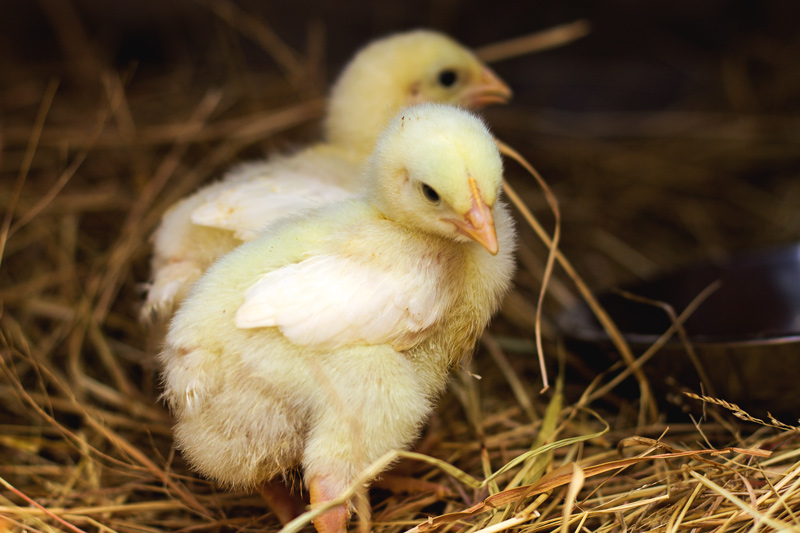
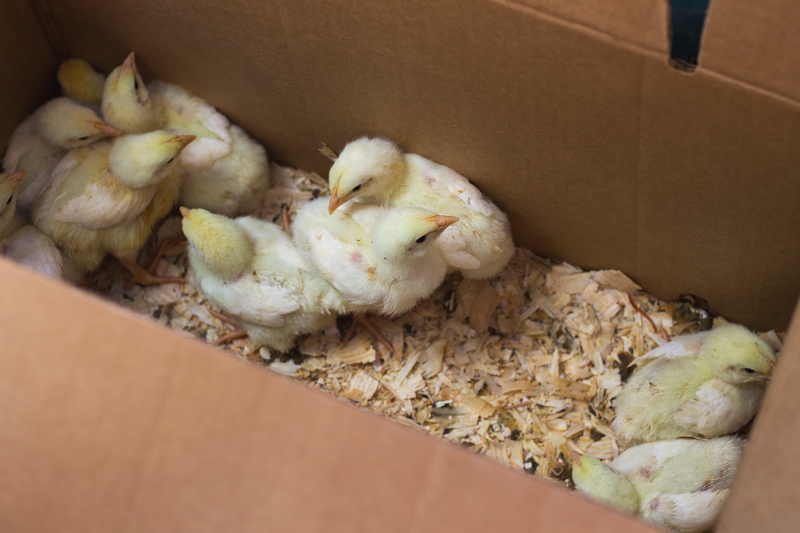
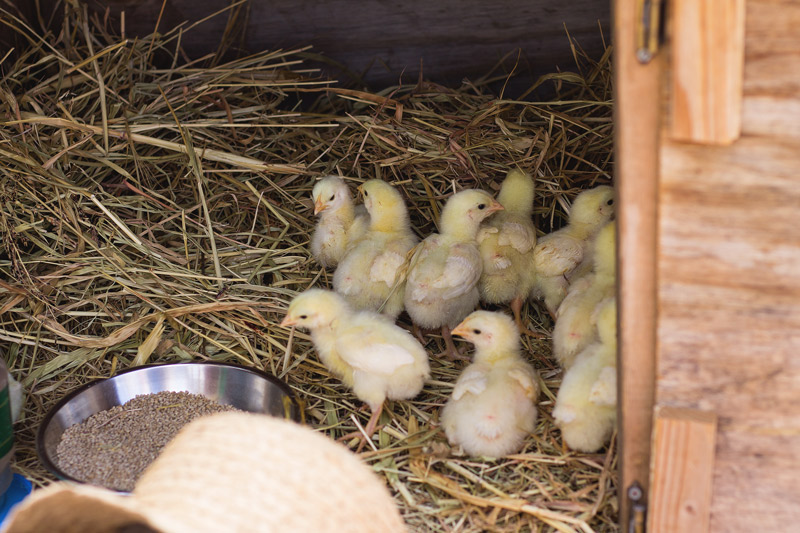
I have read many of the horror stories – and many of the success stories – from homesteaders raising the infamous Cornish Cross breed of meat chicken. So as we discussed the possibility of this being the year we would try growing a flock of meat birds, we weren’t really sure which breed we might go with.
Well, a fateful trip to Tractor Supply and a deal on chicks sealed the deal just over a week ago now. Stewart came home with forty “Cornish Rock” chicks, which seems to be another name for Cornish Cross, and we became tenders to a new flock.
Cornish Cross vs. Heritage Breeds We’ve Had
After about a week, the chicks have grown substantially. Our laying hens which have hatched out have never grown this fast. They’ve also not shown this much of an appetite. It is a bit like comparing apples to oranges, juxtaposing the seemingly heritage varieties of laying birds we’ve had and this very commercialized breed of meat bird. But there are vast differences.
What We’re Feeding Them
Thus far we have been feeding them the remainders of a bag of chick starter gifted to us and purchased a second bag of organic chick starter to get us through the next week or two. As that bag dwindles, we will try to transition to our long-term goal of feeding them local grain we get inexpensively in bulk that we then soak in sour skimmed milk plus weeds and scraps and what they spend their day foraging on. Rather than having feed in front of them all day, the plan is, Lord willing, to simply feed them once or twice a day just like our laying flock to avoid over-feeding and the leg and heart trouble they seem to be prone to.
Plus, the inexpensive grain, skimmed milk or whey, and forage makes for very inexpensive feed.
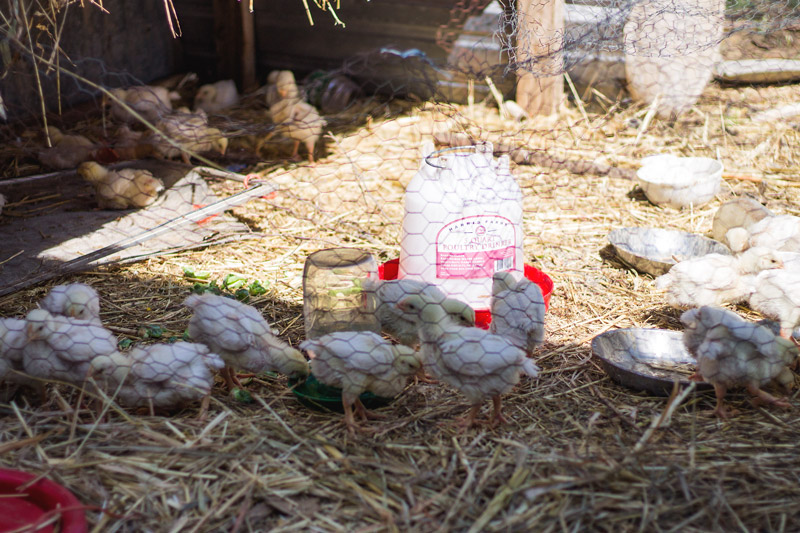
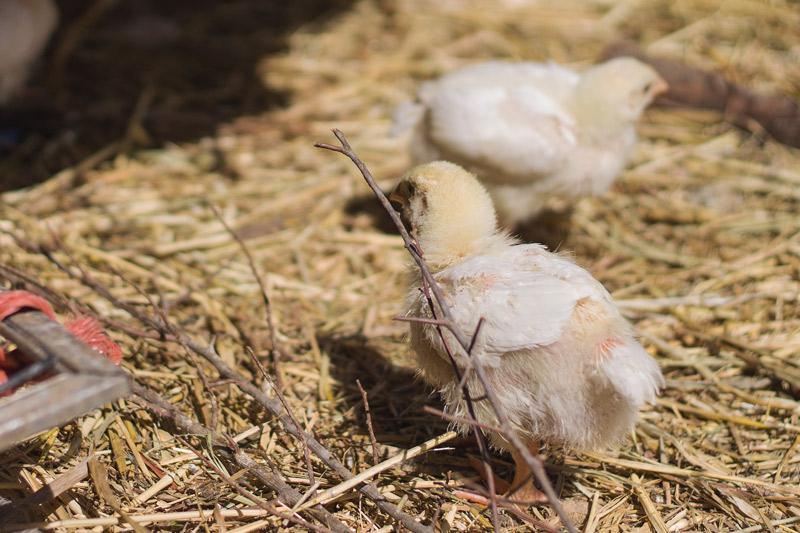
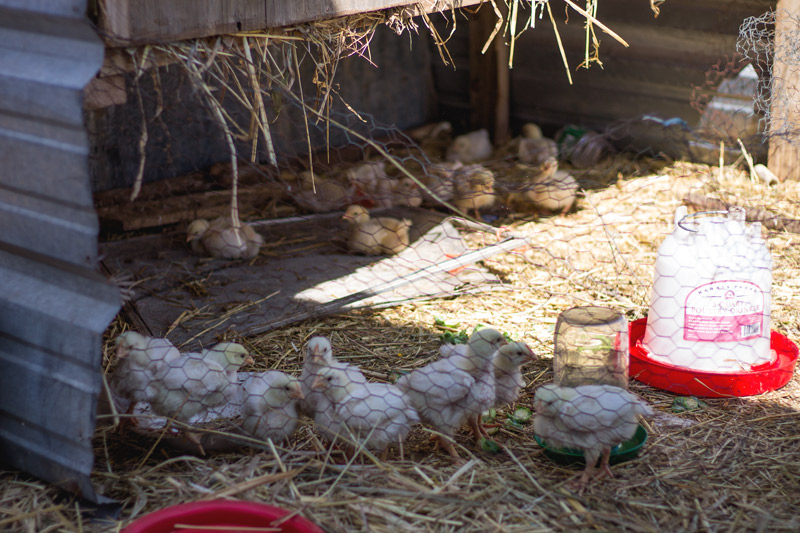
A Pastured Meat Bird
As much as we can on our little acreage, we try to provide animals with a natural diet and natural habitat. These birds could eat all day, it seems, and they are growing like crazy. They’ve grown so much, in fact, that they are ready to move onto greener pastures, as you might say. We have been keeping them in a safe fenced-in area right next to the barn, putting them up into shelter at night. But that is slated to change in the coming days, Lord willing.
A large chick run or pasture is our long-term goal so Stewart, with the helping hand of little Ruthie, is starting today on a house and a fenced in safe zone for them in a large area behind our main garden. Free pallets and reclaimed materials are on hand in plenty for the house, so the fence is the bulk of the expense.
Our goal, Lord willing, is to do this as inexpensively and safely as we can while creating infrastructure that we can use to run meat birds year after year – and maybe even several times per year – for years to come. We hope to share our experience here, as time allows. Sometimes it’s not so pretty – like how I wondered, last night, whether we would wake up to an entire flock of dead chicks when I fed them the wrong feed. Sometimes it looks nice – like the fact that, by the Lord’s grace, at last count we still have forty living chicks. So I suppose it’s quite representative of homesteading as a whole.

Just wondering if you are raising a years worth of meat for your family at once? Will you freeze it or how will you keep it for the year, I understand you are on an off grid homestead so I am curious. I wonder how it would work to incubate a meat bird eggs and just raise a few every few weeks and butcher as you need them? love your books and following your journey, many blessings
Have you read or watched polyface farm techniques? He is quite advanced in his methods and very successful. http://www.polyfacefarms.com/
First of all it’s been my experience, and I’ve raised a lot of these Cornish X chicks, that you should always raise hens. They have less problems, leg problems( nonexistant),fighting (nonexistant),heart attacks never! The problem is people want to make something out of this breed that it isn’t. They either want to run it down with out right lies, or they want to raise them like they would another breed such as a heritage type. You can’t have your cake and eat it too. There must be some thing to them because people keep coming back to them, but you can’t make them something they’re not (heritage). These birds need a lot of feed, they grow to butcher weight in seven to eight weeks. Given feed free choice in eight weeks the feed amount will maybe be less than given twice per day to a heritage breed and half the work. It’s not really free choice it’s giving what they will eat in a day. As far as soaked grain goes, you don’t want to give them any feed that is any bigger in size than grind feed. It goes through them too fast,also half the meat. It has been said they are the fastest growing chicken and I think by far they are. What you want to do is get the feed small so they will get as much out of it as they can in that short amout of time. I see in your post on the 5th that you had concern about killing your chicks with something wrong you fed them and that is a real concern if the soaked feed you give them is not ground. It will plug them up and kill them all. A friend of mine got some whole barley cheap and killed his whole flock. I think a tractor would be a good idea, but not for what you might think. Moving them out of there manure would be good and more easy than bedding. I don’t think they would get much nutrition from it though. I know Joe Salitin does it, but people believe everything he says, but I think it’s in the bedding most. Sunlight is also very good. As far as being sustainable use a heavy heritage meat bird for eggs and hatch a flock more often and butcher often so your flocks over lap by 5 months. You will have eggs and tender meat(not as tender as cornish X) and won’t rely on the hatchery. You can feed the soaked whole grain to the layers. I think the soaked feed is excellent wether it be ground or whole. For humans also! God made it that way. We just have to have wisdom and decernment to do what we should. I don’t care for chicken pluckers either. I think they make the meat soft. That’s all I have for now. If you don’t reply I will figure you didn’t read this or didn’t think it to be important and look for another to correspond with. May God bless you greatly. Yooper Prepper…..
Yooper Prepper – Such great information and thoughts you have shared here – thank you! And some timely warnings for us as we are such newbies. I agree that cornish cross shouldn’t be expected to behave like a heritage breed and I am trying to keep that in mind. Much we have learned from your comment. Thank you!